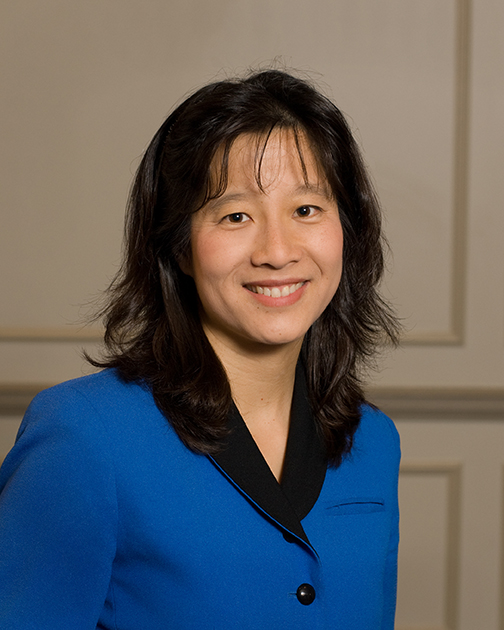Health Advisory Council Newsletter | 2018 Q2 | Member Q&A
 Eliza Lo Chin, MD, MPH
Eliza Lo Chin, MD, MPH
Executive Director, American Medical Women’s Association
Q. How would you describe your work at the American Medical Women’s Association (AMWA) and how it relates to AMWA’s overarching mission?
A. My work at AMWA is to oversee all of AMWA’s programs in advancing women in medicine and improving women’s health. Those two areas have been central to AMWA’s core mission over the past century.
Q. How long have you been at AMWA, and what do you love most about your job?
A. I have been Executive Director of AMWA for about 5 years now and prior to that served as AMWA President in 2010-2011. I love being involved in an organization which for the past 100 years has been the vision and voice of women in medicine. AMWA has played pivotal roles in history — establishing the importance of women’s health, advocating for reproductive rights, paving the way for generations of women physicians and more. My work at AMWA touches on so many different areas – education, mentorship, advocacy, women’s health, career development, medical humanities, and more. To be able to build and grow programs which impact the lives of so many patients and providers has been a unique privilege. I love what I do and look forward to partnering with other groups so that we can accomplish more together.
Q. What are the biggest challenges and opportunities facing AMWA today
A. More research and education are needed to better understand sex and gender differences in health, so that treatment can be tailored to achieve better health outcomes for both men and women. AMWA is helping to lead that charge along with partnering organizations and institutions.
Women’s health advocacy continues to be a need — ensuring that all women have access to affordable, comprehensive healthcare, including preventive screenings and reproductive health services.
Though women are entering the medical field at near equal numbers compared to men, they are not advancing to leadership positions in the same proportions as men and the percentage of women physicians reflects a significant drop off. AMWA is seeking to better understand this leaky pipeline phenomenon so that appropriate interventions can be implemented.
Physician wellness is an area that has received much focus recently, and within the group of physicians, the need to address issues concerning women physicians, even more imperative.
Q. What AMWA initiatives would you like to share with the Council?
A. AMWA has been a leading advocate of sex and gender specific health – both in terms of promoting more inclusive research and translation of research findings into the education of current and future healthcare providers. In 2015, we co-organized the Sex and Gender Medical Education Summit that brought together over 100 representatives from medical institutions in the U.S., Canada, and Europe. In 2018, we co-organized the Sex and Gender Health Education Summit that brought together nearly 250 representatives from schools of medicine, nursing, dentistry, pharmacy, and allied health to advance sex and gender health education within an interprofessional framework. We invite everyone to join our Sex and Gender Women’s Health Collaborative (SGWHC).
This past year, we produced a short documentary, At Home and Over There: American Women Physicians in World War I that premiered at the French Embassy in Washington, DC.
We have also launched a series of medical humanities initiatives within AMWA – Studio AMWA (art), Literary AMWA (writing), Digital AMWA (film), and Music and Medicine. Contact us if you would like to engage or contribute!
In July 2019, AMWA will be hosting the Centennial Congress of the Medical Women’s International Association in New York City. The call for posters and proposals is now open.
Q. What does AMWA value about membership in NCL’s Health Advisory Council?
A. We are thrilled to be part of NCL’s Health Advisory Council. AMWA first worked with NCL back in 1921, when both organizations were part of the Women’s Joint Congressional Committee (WJCC) that at the time was formed to lobby for women’s issues. One of the first areas that the WJCC focused on was the Sheppard–Towner Act, which would help protect maternal, prenatal, and child health and establish prenatal and child health centers across the country. We are excited to be partnering again with NCL on issues that impact patients, the consumers of healthcare.












